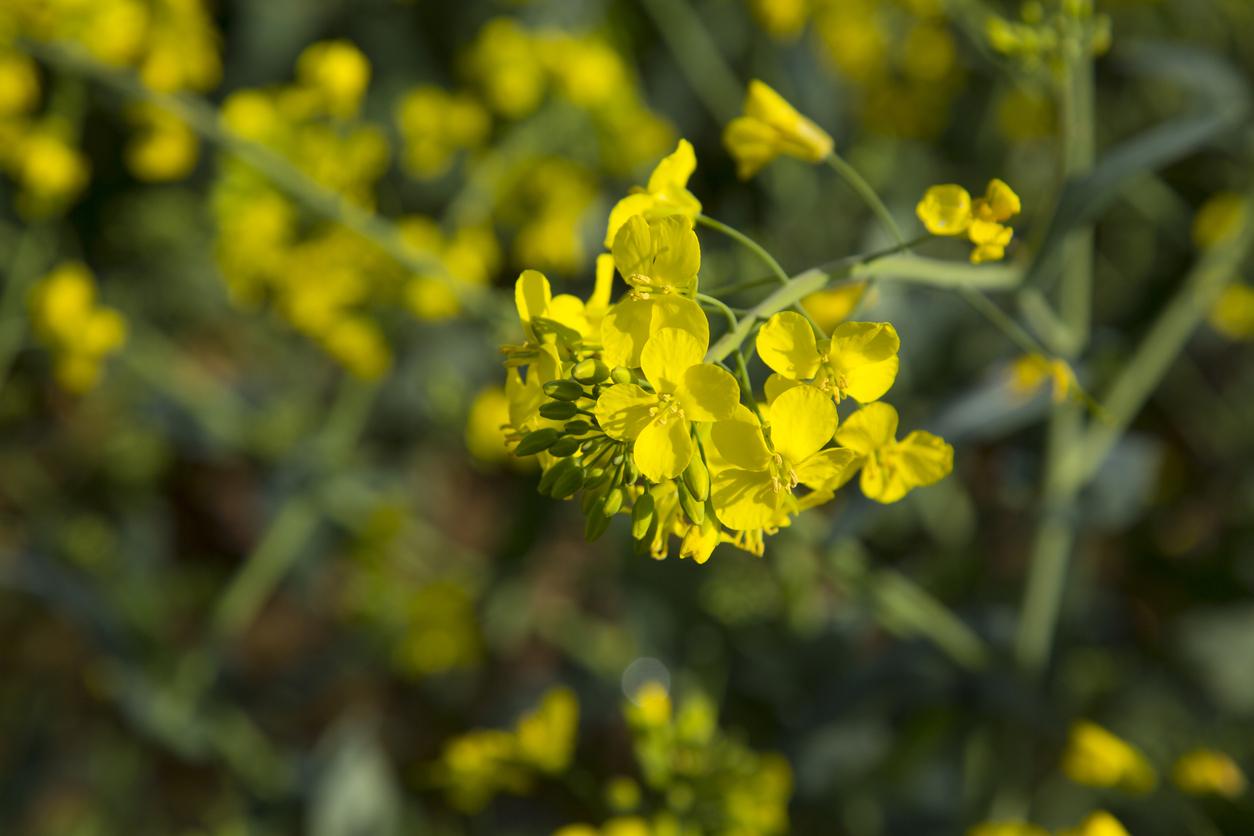
Gene Editing of Three BnITPK Genes in Oilseed Rape Reduces Phytic Acid in Seeds
April 8, 2020| |
University of Kiel researchers and partners used CRISPR-Cas9 to edit three genes in oilseed rape to reduce phytic acid in seeds. The results are published in Plant Biotechnology journal.
Phytic acid is a main source of phosphorus in plants but is considered as anti-nutritive for mono-gastric animals including humans because of its adverse effects on essential mineral absorption. Furthermore, undigested phytic acid causes algal bloom on bodies of water, harming aquatic life. To reduce phytic acid in oilseed rape, the researchers knocked out three functional gene copies of BnITPK, which are involved in the production of phytic acid in plants. Through CRISPR-Cas9 mutagenesis, low phytic acid mutants were obtained which also had significant increase of free phosphorus.
Based on the results, the techniques used could be adopted in rapeseed breeding to increase protein value with no adverse effects on oil contents.
Read more from Plant Biotechnology.| |
You might also like:
- Enzyme from Chinese Tallow Improves Freezing Tolerance in Oilseed Rape
- EFSA Publishes Scientific Opinion on Three-Event Stack Oilseed Rape by Monsanto and Bayer
- Scientists Evaluate Production of Allelochemicals by GE Oilseed Rape
Biotech Updates is a weekly newsletter of ISAAA, a not-for-profit organization. It is distributed for free to over 22,000 subscribers worldwide to inform them about the key developments in biosciences, especially in biotechnology. Your support will help us in our mission to feed the world with knowledge. You can help by donating as little as $10.
-
See more articles:
-
News from Around the World
- Continuous Adoption of GE Crops Confirms Coexistence is Attainable
- Science Media Centre Malaysia Launched
- Indian Experts Develop Nutritious Drought Tolerant Chickpea
- Rothamsted Research Study Shows White Flour is Healthiest It's Been in 200 Years
-
Research Highlights
- Study Identifies New Mechanism for Temperature Sensing in Plants
-
Plant
- CRISPR-Cas9 Used to Transform Normal Maize to Waxy Version
- Scientists Determine Successful, Cost-Efficient Biofuel Production
- Gene Editing of Three BnITPK Genes in Oilseed Rape Reduces Phytic Acid in Seeds
-
Health
- Researchers Turn to Cell-free Biotechnology to Accelerate COVID-19 Therapeutics
- Native Australian Plant Paves Way for Vaccine Development Against COVID-19
-
Read the latest: - Biotech Updates (January 21, 2026)
- Gene Editing Supplement (January 28, 2026)
- Gene Drive Supplement (February 22, 2023)
-
Subscribe to BU: - Share
- Tweet

